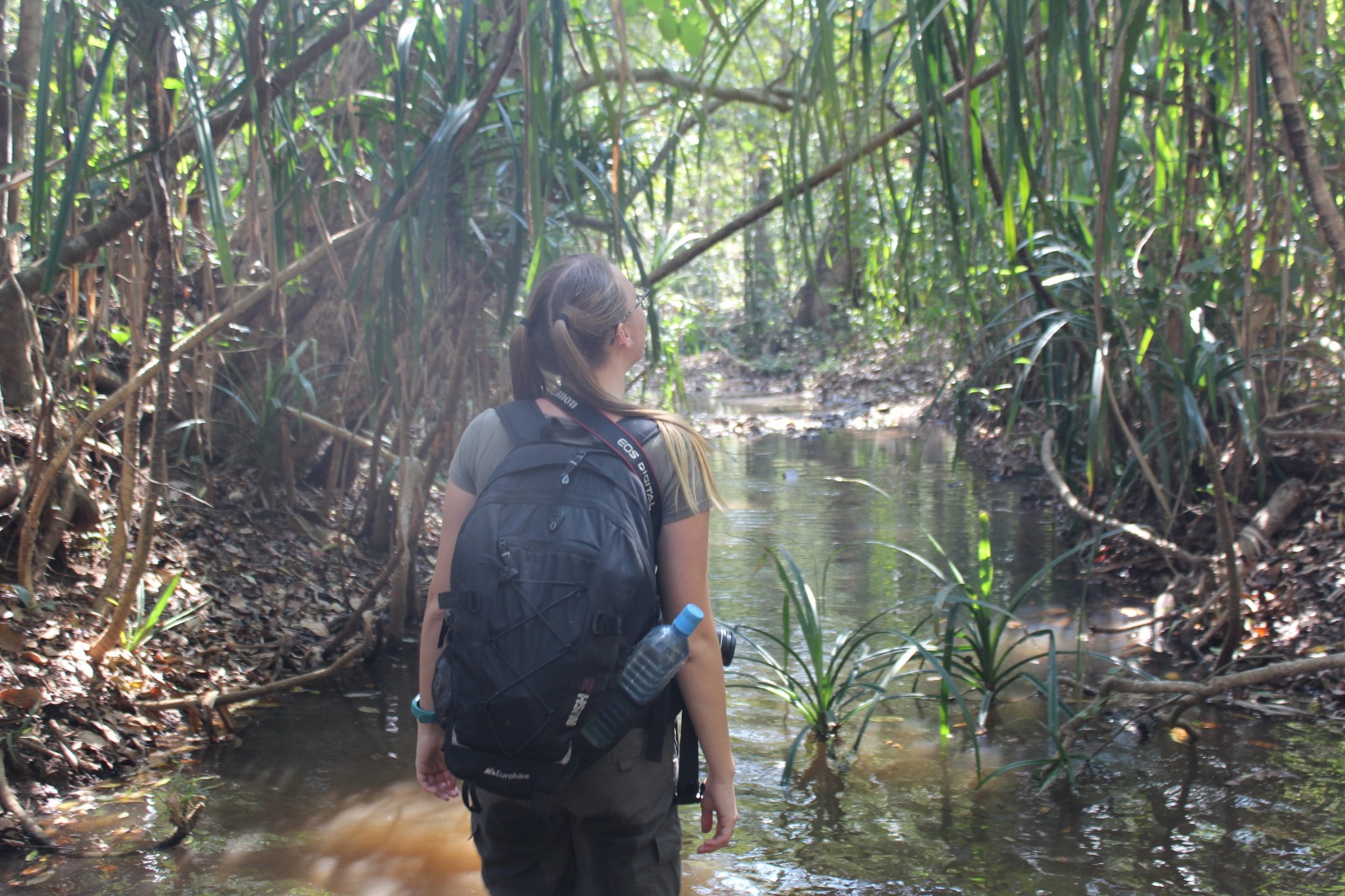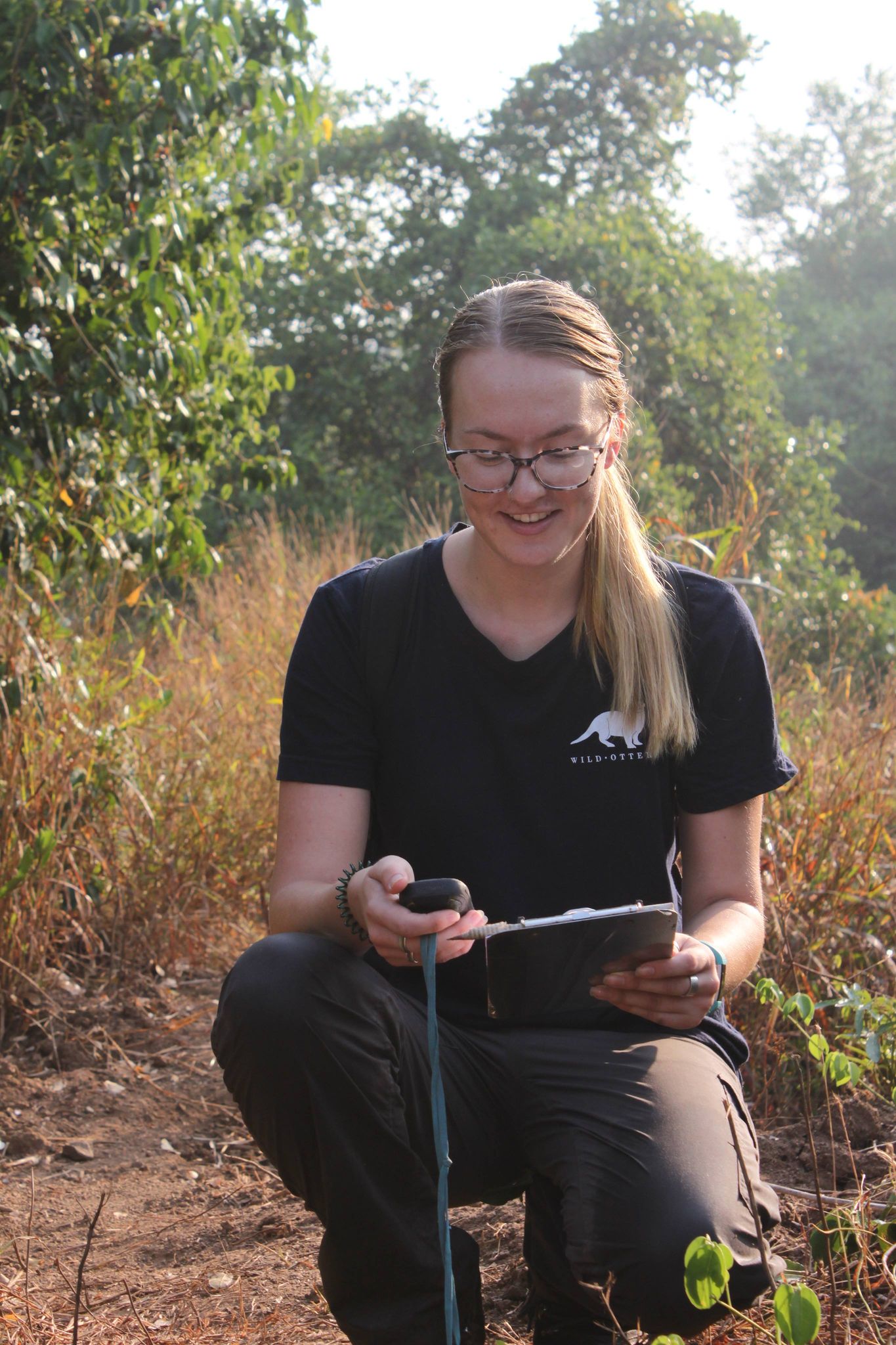Katrine graduated her Wildlife Conservation BSc in 2020, and during her time within the School of Anthropology and Conservation undertook a year in industry working as a Research Assistant with Wild Otters. Wild Otters is based in India, and runs projects to both research wild otter behaviours, and run outreach projects to help increase public knowledge and awareness. Whilst working with them, Katrine undertook research on the wild otters to build knowledge on the impact of human activity on otter behaviour.
‘Smooth-coated Otters are listed as Vulnerable on the IUCN Red List, and their population is declining. Therefore, research is essential to understand the elusive species and form meaningful and impactful conservation plans.’ Katrine explained, ‘Through my research, I believe I have filled a knowledge gap by reporting the behavioural changes the species have made to coexist with humans. Additionally, I have highlighted the need to address these behaviours when forming conservation strategies, and the importance of further research.’
‘I am extremely proud and excited to have the opportunity to share my research with others. This is a topic that I am very passionate about, and after working on it for so long, I am immensely happy that my efforts have been recognised.” Katrine Burford-Bradshaw, BSc Wildlife Conservation
Whilst many undergraduates dream of having their dissertation projects published academically, it is often a dream that requires hard work and resilience. To have your dissertation published, it often has to fill gaps in current knowledge, or add to an ongoing debate. Therefore, if you wish to publish your work, make sure to research where there are gaps in your chosen field. Once you have the relevant dissertation, you have to submit it to many academic journals, and the process can take a long time. However, as proven by Katrine, if you are willing to put in the time and effort, and can withstand a few rejections along the way, you can come out with an incredible achievement.
When asked about the process of getting research published, Katrine responded that “the submission process can take time and many edits, especially regarding the formatting guidelines of the journal. However, with enough determination and patience, your hard work will pay off. I am looking forward to the opportunity to learn more about Smooth-coated Otters and other threatened species. With the support at DICE, I’m sure students at the School of Anthropology and Conservation will continue to fill knowledge gaps and contribute to making a better planet.”

The School of Anthropology and Conservation is incredibly proud of Katrine’s accomplishments, and look forward to following what we expect to be a very successful career in conservation. Jake Bicknell, Lecturer in Conservation Biology and Katrine’s supervisor, commented that “Katrine’s excellent research shows that smooth-coated otters can co-exist with humans, and this is great news for a species that has suffered from habitat loss and persecution”.
If you would like to read Katrine’s research, you can find it here:
Katrine was studying her BSc Wildlife Conservation with a Year in Professional Practice whilst she completed her research.

